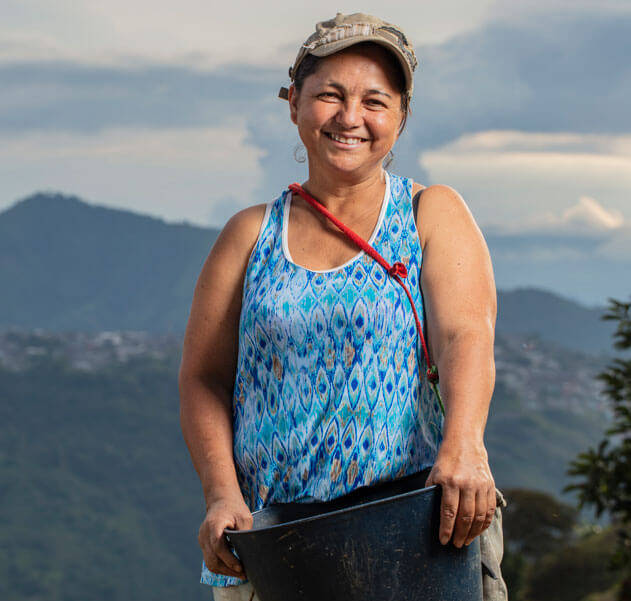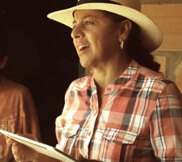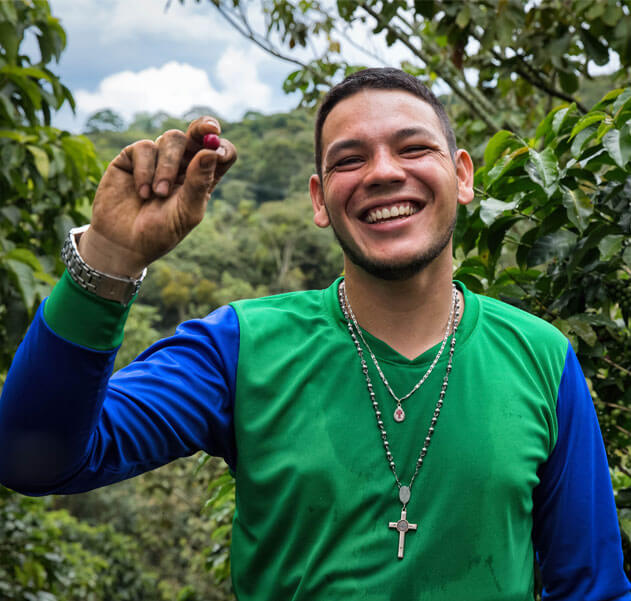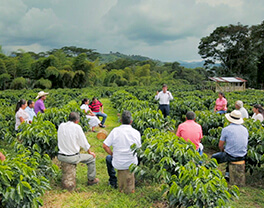In the social dimension
we work with 6 lines of action
Education
We promote capacity building in rural education and skill and human development.
Infrastructure
We manage and implement projects on road improvement, housing, basic sanitation, energy, social infrastructure, connectivity, and water treatment.
Social protection
We promote social protection of coffee-growing families and communities.
Community participation and associativity
We promote the strengthening of capacities of associative groups, community groups and coffee grower cooperatives.
Gender equity
We promote the right to fair and equal access to development opportunities in the coffee union and empower women to lead processes on the farm and in their communities.
Generational integration
We strengthen leadership, entrepreneurial opportunities and life options in coffee farming for children and young people.
Outstanding contributions to Colombian rural development
- We have managed and realized the construction or improvement of over 7 million* infrastructure works, including housing, public services, roads, schools, hospitals, clinics, sports centers, wet mills and dryers, among many others. *Consolidated data between 1944 and 2015.
- We have managed to mitigate the effects of violence, the armed conflict and illicit crops and helped producers not abandon coffee farming.
- Efforts of the coffee institutions have focused on strengthening not only the production system of Colombian coffee growing, but also ensuring sustainability of the sector and improving quality of life and well-being of thousands of rural people.

CASE OF SUCCESS
Gender equity
In Colombia, about 30% of coffee growers are women, and studies confirm that their leading role in the family economy translates into greater sustainability. At the FNC, we are committed to gender equity (since 2006 we have a dedicated program), female empowerment and their increasing participation in the coffee value chain, producer associations and union governing bodies.
An example of this is that in the 2018 FNC elections, union representation of women grew to 15% in the departmental committees from 8% in 2014, and to 24% in the municipal committees from 16% in 2014.
Data of interest
30%
of coffee growers in Colombia are women
15%
of union representatives in departmental committees are women
24%
of representatives in municipal committees are women

CASE OF SUCCESS
Generational integration
Generational integration is one of the main challenges in the coffee sector. And to address it, at the FNC we work in different fronts.
In addition to institutional support to all producers, we promote policies, models, spaces, programs and projects of education, meeting, participation, innovation and entrepreneurship for young people to build a life project around coffee.

Data of interest
20%
Is the rate of union representatives under 45 years old in the departmental committees
34%
Is the rate of union representatives under 45 years old in the municipal coffee grower committees
2018
Year when the 1st National Meeting of Young Coffee Growers was held





